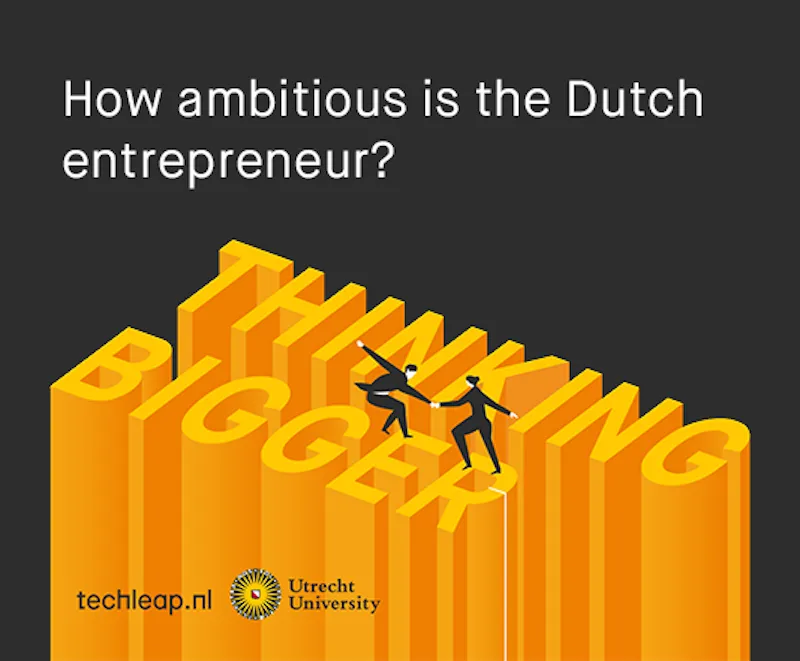October 15, 2021
The Dutch entrepreneurship paradox: why does the Dutch scaleup ecosystem succeed less than it could?

What are some of the key takeaways from the report, you might ask? We’ve summarised them in 4 points.
Most entrepreneurs are not focused on scaling their business models. This is especially the case for the Netherlands. Data from the Global Entrepreneurship
Monitor (GEM) shows that compared internationally the Dutch place higher value on self-employment and starting your own business than growing it successfully.
This is referred to as the Dutch Entrepreneurship Paradox. The Dutch have a relatively low fear of failure paired with a high appreciation of entrepreneurship as a career choice, but their appreciation for successful entrepreneurship has not reached similar enabling levels. This suggests that there is still untapped potential to leverage the benefits of scaling up.
We must transcend the culture of ‘Just act normal, that is crazy enough as it is’ and give entrepreneurs the possibilities to set their ambitions high.
Another challenge in translating ambition levels to success is the industry in which entrepreneurs are active. The biggest and fastest-growing companies today are tech-driven companies. Dutch female entrepreneurs, however, are less frequently involved in technology- or innovation-related activities than male entrepreneurs. Figure 1 highlights this gender difference in tech- and innovation-driven entrepreneurship.
There is clearly a lot of untapped potential in the Netherlands when it comes to female ambitious entrepreneurship. Even though the number of women entrepreneurs is growing, those aiming for substantial growth are still rare. That becomes especially evident when comparing the growth-oriented entrepreneurship of Dutch women with Israeli or American (see Figure 2).
Even though solving this issue is far from straightforward, ecosystem support should probably focus more on facilitating ambitious female entrepreneurship to enhance their ability to attract venture capital and grow large, valuable businesses.
There is clearly a lot of untapped potential in the Netherlands when it comes to female ambitious entrepreneurship. Even though the number of women entrepreneurs is growing, those aiming for substantial growth are still rare. That becomes especially evident when comparing the growth-oriented entrepreneurship of Dutch women with Israeli or American (see Figure 2).
Even though solving this issue is far from straightforward, ecosystem support should probably focus more on facilitating ambitious female entrepreneurship to enhance their ability to attract venture capital and grow large, valuable businesses.

 Why are angel investors so important in closing the early stage funding gap...
Why are angel investors so important in closing the early stage funding gap...